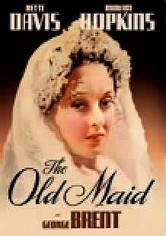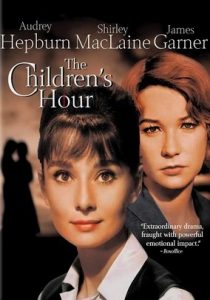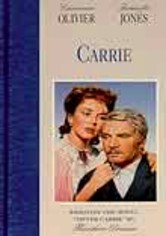Savage Intruder-1970
Director Donald Wolfe
Starring Miriam Hopkins, John David Garfield, Gale Sondergaard
Scott’s Review #1,516
Reviewed February 9, 2026
Grade: B+
A cult subgenre of horror, disparagingly called hag-horror, made a modest name for itself throughout the 1960s and into the 1970s.
Thanks in large part to the surprise success of the cult classic What Ever Happened to Baby Jane? starring Hollywood legends Bette Davis and Joan Crawford in 1962, this encouraged other stalwart actresses, well past their prime, to seek a sliver of career rejuvenation, or at least to keep themselves in the game.
Savage Intruder (also known as Hollywood Horror House) is a 1970 American psychological horror film that is clearly influenced by Baby Jane, borrowing its central plot point and a similar setting.
Unclear why the little-known film warrants two separate titles, my preference is for the latter, though the former seems to be the main title. Hollywood Horror has a more dramatic flair and is more true to the storyline than the more generic-sounding Savage Intruder.
The film also has similarities to the 1950s film Sunset Boulevard, which features an aging actress oblivious to Hollywood’s harsh realities and enamored with a younger man.
An injured, alcoholic movie queen who uses a wheelchair, Katharine Packard (Miriam Hopkins), lets a mutilator named Vic (John David Garfield) move into her Hollywood mansion as her personal assistant and nurse.
Vic intends to insinuate himself into Katharine’s good graces and take control of her estate. Katharine’s other staff, secretary Leslie (Gale Sondergaard), housekeeper Mildred (Florence Lake), and cook Greta (Virginia Wing), become suspicious of Vic and try to thwart his devious efforts.
But will any or all of them fall victim to his schemes?
The main attraction is Hopkins, who was a relatively big star in the 1930s and 1940s, even receiving an Oscar nomination for 1935’s Becky Sharp. She was also a rival of Bette Davis.
A similar role to Crawford’s disabled Blanche in Baby Jane, Hopkins is believable as a vulnerable woman who has battled alcoholism but is wise enough to know it is her undoing. After all, falling down the stairs while drunk is the reason she needs care at all.
In Katherine’s case, she also desires a man’s affections and hopes against hope that Vic likes her for who she is, not just her money. Hopkins channels this emotion well, as many older women can relate to her predicament.
She is also a good enough actress to portray fear and vulnerability convincingly, without making the character a nitwit or too melodramatic.
John David Garfield, while not a terrific actor, is convincing enough to make the audience half believe that, as a kid, watching his mother participate in an orgy was enough reason to chop her partners to bits.
The statuesque mansion high atop the Hollywood Hills is grandiose and a perfect setting for this type of film. Shots of characters peering from window to balcony or tiptoeing up or down a stairway ooze mystery and danger at every turn.
We know that Vic will try to off Leslie, Mildred, and Greta in no particular order, so the fun is in the whodunit vein. A fan of chopping off body parts, we wonder who will lose limbs.
Donald Wolfe, a director I am unfamiliar with, is careful not to make the film too campy and ridiculous, and he largely succeeds. With a good blend of suspense, mostly involving when Vic will jump out at Katherine or one of the supporting characters, there is a perilous feeling.
Of course, some hokey moments transpire, as when a mannequin is believed to be Katherine despite a waxy shape and a different hair color. Or, when Vic makes it appear that Katherine is in her room when she really isn’t, and nobody has the wherewithal to check on her.
There’s also an amateurish quality to the amputation scenes that reminds me of H.G. Lewis’s gore-horror films.
But enough fun is incorporated into the film to make it a success, and the ridiculously juvenile appendage-chopping sequences are humorous enough not to be taken too seriously.
Savage Intruder (1970) is a forgotten relic that has superior acting, a good pace, and nice Los Angeles elements, making it an enjoyable entry into the hag horror genre.



